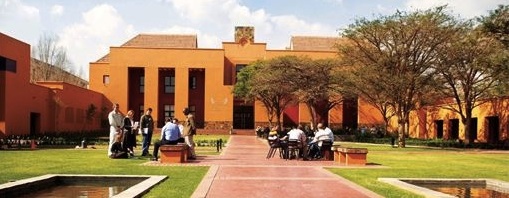Creating shared value:
How South Africa led the world in corporate governance & economic empowerment
Blog by Wayne Visser
The concept of shared value became increasingly important for business in South Africa during the 1990s, long before it was coined by the Harvard academic duo of Michael Porter and Mark Kramer. Fortunately for me, I had a front-row seat.
In 1997, having helped to kick-start the South African New Economics (SANE) Foundation, I then joined the global accounting firm KPMG. My mandate was to establish an Environmental Unit, which later evolved to incorporate social, economic and ethical dimensions and become KPMG Sustainability Services. Over the next six years, I advised numerous companies, many of them multinationals, on how to improve their sustainability performance.
So, what of lessons? There are two that I want to share and both are areas in which I believe South Africa has made a significant contribution to the worldwide quest for sustainable business. The first is corporate governance and the second is economic empowerment.
Challenging shareholder supremecy
Following the success of the UK’s Cadbury Report in 1992, South Africa launched its own King Report on Corporate Governance in 1994, under the chairmanship of former High Court judge and company director, Mervyn E. King. King went much further than Cadbury in recognising the non-financial aspects of corporate governance and incorporating the concept of wider stakeholder accountability. In later updates, in 2002 and 2009, the King Report placed sustainability and responsibility at the heart of corporate governance.
When I caught up with Mervyn King in Turkey a few years ago, he told me that directors are accountable to the company first, not to shareholders, and that a broader set of stakeholders provides a better perspective on what is good for the company in the long term. It is no coincidence that he went on to chair the GRI and now spearheads the International Integrated Reporting Council (IIRC).
Although the King Code is a voluntary standard, in common with other corporate governance codes around the world, the Johannesburg Securities Exchange (JSE) made compliance with the code a listing requirement. This had a dramatic effect. By 2003, 85% of South Africa’s top companies were already practising annual reporting on sustainability-related issues, and 77% of the companies referenced the existence of an internal code of ethics or code of corporate conduct.
There is a downside to the boom in sustainability reporting since the 1990s, evident not only in South Africa but around the world. I believe it has distracted us from a related, and in some ways far more important trend, namely social and environmental accounting. This refers to financially quantifying the social and environmental impacts of business, or to use economics jargon, pricing the ‘externalities’.
In fact, while at KPMG, I helped a large chemical company to design an environmental accounting system. At the time, social and environmental accounting was a strongly emerging field, under the intellectual leadership of UK academic Rob Gray, and the pioneering efforts of companies such as BT, Baxter International and Ontario Hydro. Today’s much-hailed environmental profit and loss account of Puma is actually 15 years behind the times …
Continue reading
[button size=”small” color=”blue” style=”download” new_window=”false” link=”http://www.waynevisser.com/wp-content/uploads/2013/08/blog_csrwire5_wvisser.pdf”]Pdf[/button] Creating shared value: How South Africa led the world (blog)
Related websites
[button size=”small” color=”blue” style=”tick” new_window=”false” link=”http://www.waynevisser.com/books/the-quest-for-sustainable-business”]Link[/button] The Quest for Sustainable Business (book)
[button size=”small” color=”blue” style=”tick” new_window=”false” link=”http://www.csrinternational.org”]Link[/button] CSR International (website)
Cite this blog
Visser, W. (2013) Creating shared value: How South Africa led the world in corporate governance & economic empowerment, Wayne Visser Blog Series, 17 July 2013.









